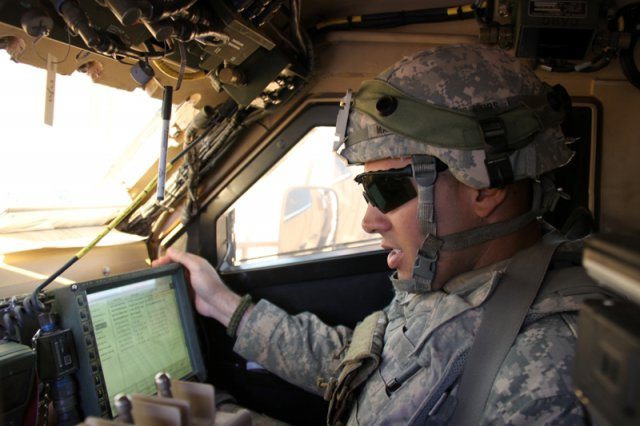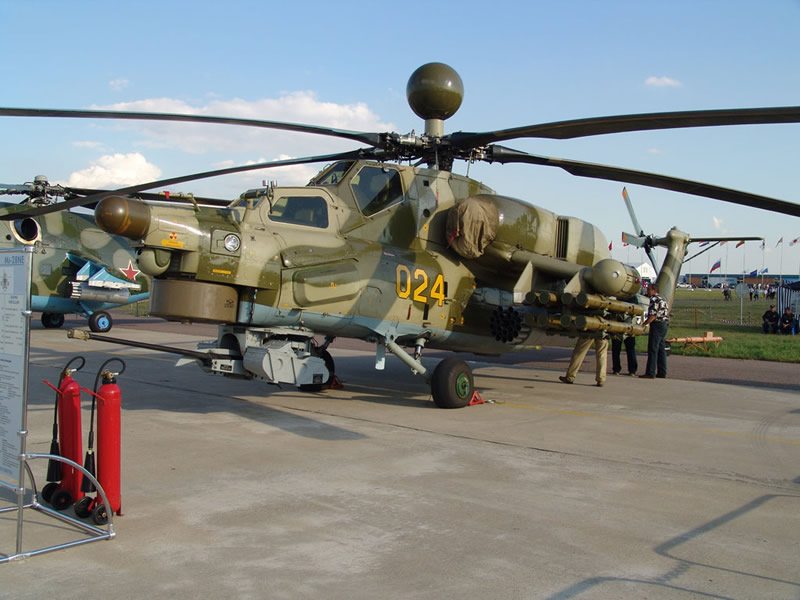In the largest deployment yet of the General Dynamics-developed JTRS HMS Manpack and Rifleman Radios and the Warfighter Information Network-Tactical (WIN-T) network, the U.S. Army is now conducting realistic operational evaluations of the next generation of high-speed communications equipment developed for ground forces.
WIN-T Increment 2 and the JTRS Manpack and Rifleman radios form the baseline for the Army’s on-the-move tactical network. These two networking programs of record are completing operational testing at the Network Integration Exercise (NIE) 12.2 at White Sands Missile Range, N.M., through the end of May.
The JTRS HMS Manpack radio (AN/PRC-155) provides line-of-sight and beyond-line-of-sight, high-bandwidth waveforms for on-the-move voice, sensor, data and position-location capabilities on soldiers or in vehicles. The PRC-155 two-channel networking manpack radio is the first tactical radio capable of supporting all three non-proprietary JTRS networking waveforms and is engineered to easily port additional JTRS waveforms as they complete development. Nearly five pounds-per-channel lighter and with twice the communications and networking capabilities of some single-channel manpack radios, the PRC-155 is also interoperable with radios that U.S. forces are currently using, including interim radios that cannot meet the networking requirements of the future force.
The PRC-155 Manpack radio has been a part of all three NIE exercises and is the only Soldier Radio Waveform (SRW) radio undergoing Multi-service Operational Test and Evaluation at NIE 12.2.
In addition, over 700 JTRS HMS networking radios are deployed at NIE 12.2. More than 20 percent smaller than current tactical handhelds, and with battery life of over ten hours, the PRC-154 Rifleman Radio is the government-issued networking radio of choice for dismounted soldiers, and the only SRW-capable radio proven in combat. When size, weight and power limits constrain vehicle integration options in vehicles needing networked communications, the Rifleman Radio also mounts to a ‘Sidewinder’ accessory that provides power amplification and is compatible with standard military mounting trays and vehicle intercom systems. The Sidewinder accessory/Rifleman Radio combination, which premiered at the previous NIE 12.1 as a system under evaluation, is also part of the NIE 12.2.
“The HMS Manpack and Rifleman Radios are the only tactical radios that have been ‘systems under test’ at the NIE 12.2 events. This means that detailed performance data, such as message completion rate, has been gathered and analyzed by independent observers while soldiers stress the system. This rigorous testing often reveals operational issues that are not evident in field or laboratory evaluations, which can then be addressed before products are deployed to the field,” said Chris Marzilli, president of General Dynamics C4 Systems. “HMS program radios are the only radios that have already been evaluated and had their test findings addressed.”
The HMS program mission is to develop and produce affordable networking tactical radio systems that meet the requirements of the Army, Navy, Air Force, Marine Corps and Special Operations Forces communities. A success story for the Army’s Agile Acquisition process, both the PRC-155 and PRC-154 radios are planned for deployment with the first integrated group of network technologies that will be fielded to Army Brigade Combat Teams, starting in the fall of 2012.
General Dynamics is also the prime contractor for the Army’s number one modernization priority, the Warfighter Information Network-Tactical (WIN-T). Undergoing initial operational testing at NIE 12.2, WIN-T Increment 2 extends the network for Brigade Combat Teams down to company level and provides on-the-move capabilities to commanders and staff at division through company levels.











